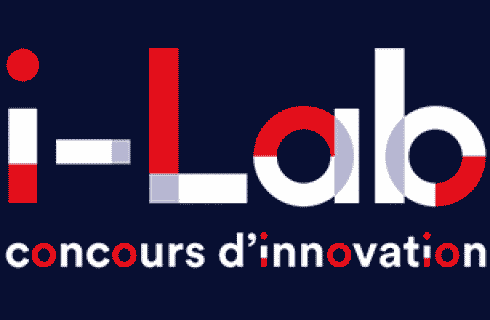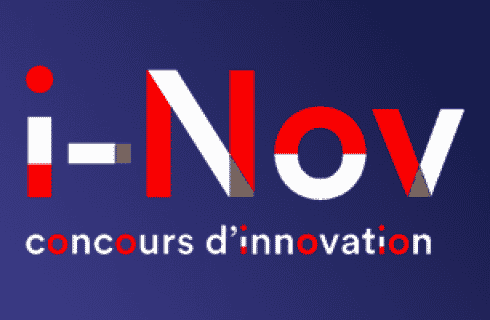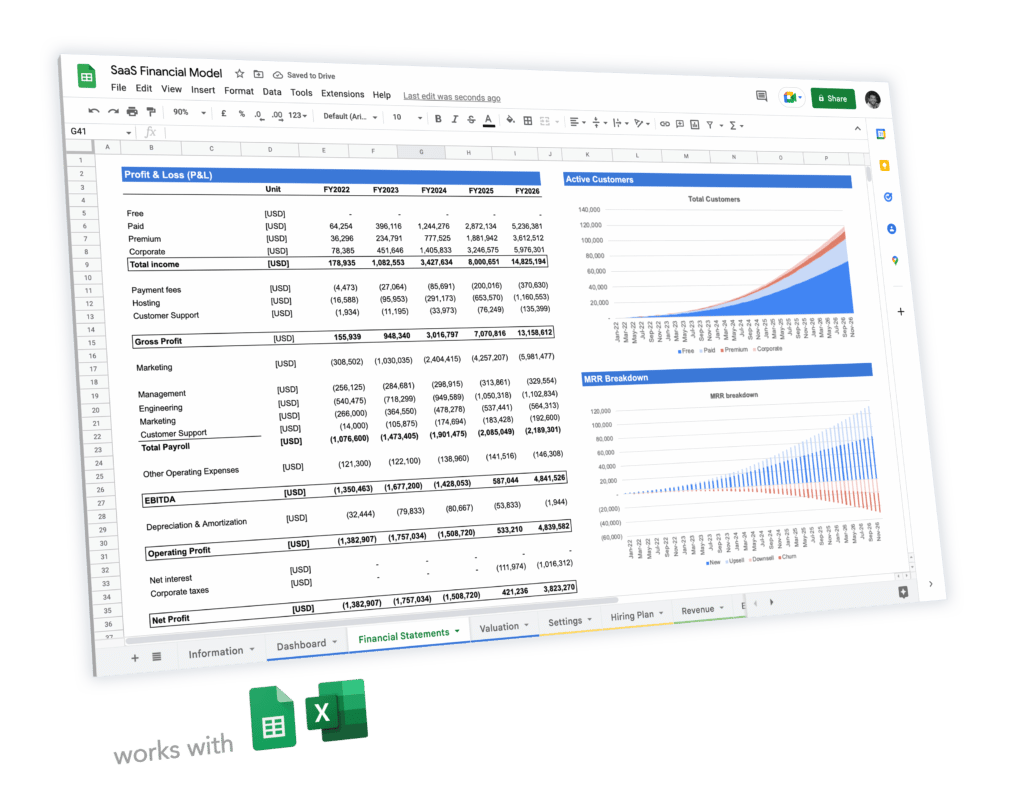France’s Top 7 Public Grants For Startups [2023]

France is one of the most attractive country for entrepreneurs and startups. There are indeed plenty of government grants, free money essentially, that startups can receive. So, what are France’s best government grants for startups? Are you eligible? How much can you actually get?
In this article we’ll go through the most common public grants entrepreneurs and startups in France can receive.
What (Exactly) Is A Government Grant?

Government grants (or “public grants”) are a form of financing whereby government-backed institutions provide funding to companies. Funding is also often provided along with mentorship, advice, and hands-on support.
First, in order to get a public grant, companies need to apply. Then, they must go through a very thorough selection process. Often, only a fraction of businesses get a successful application (UK’s flagship SMART grant program only has a 6% success rate for example).
There are 2 very different types of government grants:
- Grants: government-backed institutions invest in businesses with no strings attached. They are essentially “free money” and the most attractive form of financing a business can get
- Government-backed loans issued by the government itself, or guaranteed by it. The most famous example of these are SBA loans for US startups
Is it too good to be true?
Unfortunately, not every business can apply to government-backed grants. They are often designed for companies developing game-changing technological products and services.
Also, grants always come with strict conditions when it comes to use of funds. For example, funds may only be used for market research, product development, prototyping, etc. Typically, grants come with reporting requirements and companies may be to subject to audits.
#1. French Tech Grant

The French Tech Grant was created in 2014 by France’s own public investment arm, BPI France. It aims to fund early-stage startup businesses with up to €30,000 equity-free funding to pay for up to 70% of startup costs.
Since its creation, over 4,500+ startups have received funding for a total of €120M with an average funding of €26,000 per project.
What is it?
€30,000 equity-free funding to pay for up to 70% of startup costs.
For whom?
Any startup business that meet all the following criteria:
- Business incorporated within the last year
- Less than 50 employees
- Balance less of less than €10 million
Also note that individuals without a corporate structure can also apply for the grant, including sole proprietorships or entrepreneurs enrolled in an accelerator or incubator for example.
#2. French Tech “Emergence” Grant

The French Tech “Emergence” Grant is very similar to the French Tech Grant discussed above. The main difference is that it focuses on deep tech businesses and offers up to €90,000 funding per project (instead of €30,000).
In 2019 alone, 94 startups have received an average funding of €85,000 for a total of €8 million.
What is it?
€90,000 equity-free funding to pay for up to 70% of startup costs.
For whom?
Any startup business that meet all the following criteria:
- Project considered “deep tech”
- Business incorporated within the last year
- Less than 50 employees
- Balance less of less than €10 million
#3. French Tech Seed

The French Tech Seed Fund is another of BPI France‘s recent initiative to promote investment in tech-enabled businesses (but not necessarily deep tech).
Created in 2018, it is a €400 million fund that co-invests with in deep tech startups in France.
It offers startups funding in the form of convertible notes. Therefore, it isn’t free money per se unlike standard public startup grants.
Also, it’s worth noting that the fund doesn’t invest alone. As explained earlier, they co-invest meaning they are participating to an equity fundraising round alongside other investors (angel investors for example).
What is it?
€50,000 to €500,000 convertible note funding (7% interest p.a.).
The convertible notes are capitalised at a 7% interest rate per annum and have a 5 year maturity. In case of a conversion to equity, the business need to raise at least €2 million in a subsequent fundraising. See more on the convertible notes terms here.
For whom?
Any small business incorporated in France that meet all the following criteria:
- Business incorporated within the last 3 years
- Less than 50 employees
- Have already raised at least one equity round in the past
#4. Aide Au Développement Deeptech (ADD)

Aide Au Développement Deeptech (ADD) is another of BPI France’s grants program for deeptech startups in France.
Unlike the French Tech “Emergence” Grant discussed above, ADD is more suited for SMEs (vs. early-stage startups). Indeed, they offer up to €2,000,000 funding per project, and companies of less than 2,000 employees can apply.
The grant aims to fund projects costs carried out by businesses that fall into deeptech as per BPI France’s definition. The type of expenses that can be funded by the grant is varied and include personnel costs, IP expenses, overheads, Capex, etc.
What is it?
Up to €2,000,000 funding per project, with a mix of both public grant (free money) and repayable subsidy. Total funding is limited to 45% maximum of the project’s expected costs.
For whom?
Any business incorporated in France that meet all the following criteria:
- Less than 2,000 employees
- Project needs to be considered “deeptech”
#5. Crédit d’Impôt Recherche (R&D Tax Credit)

Le Crédit d’Impôt Recherche (“CIR”) is France’s tax incentive program that aims to promote companies of all sizes investing in research & development (R&D).
In simple terms, any eligible business can claim qualifying R&D expenses under the R&D tax credit scheme. In return, companies receive up to 30% of the amount claimed as a tax credit.
Also, any R&D expense that fall under either fundamental research, industrial research or experimental development can be claimed. Examples of such expenses include: salaries, subcontractor costs, overheads, etc.
What is it?
Tax credit of up to 30% of claimed R&D costs. The tax credit is then used to offset any corporate taxes in the future.
For whom?
The eligibility criteria for France’s R&D tax credit is very broad. Indeed, all types of businesses from any sector can be eligible as long as they invest in R&D.
Also, it doesn’t matter whether your business is loss-making or profitable. Indeed, even loss-making businesses can claim R&D expenses under the CIR tax program and carry forward any tax credit in the future. So as long as you spend in R&D, you can claim CIR.
For more information on France’s R&D tax credit, read our article here.
#6. i-Lab

i-Lab is a prize competition where successful startups can obtain an equity-free grant of €600,000 to fund eligible technology projects.
The grant is designed for early-stage startups incorporated less than 2 years ago. Yet, applicants need to already show a proof of concept (POC).
The competition has been around for a while. Its 23th edition in 2020 rewarded a total of 73 projects for a total funding of €20,000,000.
What is it?
A €600,000 equity-free grant to fund projects costs of up to €1,000,000.
For whom?
Any business incorporated in France that meet all the following criteria:
- Incorporated less than 2 years ago
- The technology and/or the product need to already have a proof of concept
#7. i-Nov

i-Nov is a startup competition prize where successful businesses can obtain a grant of up to 45% of eligible project costs. The total project costs need to be between €600,000 and €5,000,000 and the project itself need to last between 12 and 36 months.
As such, whilst i-Lab is focused on early-stage startups, i-Nov is more suited for SMEs.
i-Nov’s 2020 edition funded a total of €76,000,000 to 135 projects.
What is it?
A €200,000 to €2,250,000 grant, a mix of equity-free grant (75%) and repayable subsidies (25%), to fund between 35% and 45% of total eligible projects costs.
For whom?
Any SME incorporated in France that needs to fund a project that meet all the following criteria:
- Total costs between €600,000 and €5,000,000
- The funding need to be spread out over 12 to 36 months
- Need to fall into one of the 10 eligible industries (examples include Deep Tech, Industry 4.0, health tech, etc.)


 5-year pro forma financial model
5-year pro forma financial model 20+ charts and business valuation
20+ charts and business valuation  Free support
Free support